Looking back over the past 80 years, how do you evaluate the role of science and technology in the cause of building, protecting and developing the country?
Former Minister of Science and Technology Nguyen Quan: The Party and State of Vietnam have very early recognized the important role of science and technology in the cause of building and defending the Fatherland. Right from the early days of the country's founding and during the resistance war against France, the Party and State leaders have especially valued the contributions of scientists.
President Ho Chi Minh called on leading scientists, many of whom were living and working abroad, to return to serve the revolutionary cause, typically Professor Tran Dai Nghia and Professor Tran Huu Tuoc, and technology experts such as Vo Quy Huan and Vo Dinh Quynh.
These scientists had many achievements contributing to the resistance war against the French: weapons such as the recoilless rifle, DKZ of Professor Tran Dai Nghia, along with the medical network serving the army of Professor Tran Huu Tuoc, or the iron foundries producing weapons in the war zone of experts such as Vo Quy Huan and Vo Dinh Quynh made enormous contributions to the resistance war.
 Former Minister of Science and Technology Nguyen Quan in a conversation with reporters of Vietnam Business Newspaper.
Former Minister of Science and Technology Nguyen Quan in a conversation with reporters of Vietnam Business Newspaper.After peace was restored in 1954, the Government established universities to develop the country's science and technology such as Hanoi University of Science and Technology, Hanoi University of Science... and in 1959, established the State Committee for Science and Technology (State Committee for Science). Right from the 3rd Party Congress (1960), the Congress's documents identified science and technology as a key revolution, alongside the revolution in production relations and the revolution in cultural ideology.
To develop science and technology, the Party and State pay special attention to building a team of highly qualified cadres. Vietnam has sent many cadres to study in countries with advanced science and technology such as the Soviet Union, China and Eastern European countries. This team of well-trained cadres made great contributions to the resistance war against the US to save the country. Particularly important achievements during that period include mine clearance to prevent the blockade of Hai Phong port, the construction of an oil pipeline from the North to the South, as well as the improvement of the SAM-2 missile to fight against B-52 aircraft... In addition, Vietnam has also achieved many achievements in health care, industry and agriculture.
 The Bazooka gun made by Professor Tran Dai Nghia during the resistance war is on display at the Exhibition 80 years of the journey of Independence - Freedom - Happiness.
The Bazooka gun made by Professor Tran Dai Nghia during the resistance war is on display at the Exhibition 80 years of the journey of Independence - Freedom - Happiness.After the country was reunified in 1975, the role of science and technology was even more important. At the 4th, 5th and 6th Party Congresses, science and technology were not only considered key but also the foundation and driving force for socio-economic development.
In particular, after the 8th Party Congress, the 2nd Central Resolution identified science and technology as the top national policy. By the 11th Congress, the Party had issued Resolution No. 20-NQ/TW dated November 1, 2012 (Resolution 20) on developing science and technology to serve the cause of industrialization and modernization in the context of a socialist-oriented market economy and international integration, identifying science and technology as having a leading role and being the main driving force for socio-economic development.
Most recently, the Politburo issued Resolution 57-NQ/TW dated December 22, 2024 on breakthroughs in science and technology development, innovation and national digital transformation (Resolution 57). To achieve the goals as stated in Resolutions 20 and 57, the National Assembly and the Government have issued many documents such as the Law on Science and Technology 2000, the Law on Science and Technology 2013 and the Law on Science, Technology and Innovation recently passed by the 15th National Assembly; Resolution No. 193/2025/QH15 of the National Assembly on a number of special mechanisms and policies to create breakthroughs in the development of science, technology, innovation and national digital transformation, Decree No. 115/2005/ND-CP of the Government on the mechanism of autonomy and self-responsibility of public science and technology organizations, Decree 80/2007/ND-CP on science and technology enterprises, Decree No. 40/2014/ND-CP of the Government on the use and promotion of individuals in science and technology activities, Decree No. 95/2014/ND-CP of the Government on investment and financial mechanisms for science and technology activities, etc.
What results has investment in science and technology brought about in recent times, sir?
Thanks to identification and focused investment, in recent years, Vietnam's science and technology has had strong growth.
If during the difficult period, Vietnam ranked very low in the world's top 80 in the global innovation index GII, it has now risen to 44th/135 in the world, and the goal is to reach 40th place by 2030, and possibly even reach the top 35 in the world.
Thanks to science and technology, Vietnam has become the leading country in innovation capacity among the group of 33 low-middle income countries.
 Chip products with operating systems and applications of MK Group have been deployed on more than 100 million electronic ID cards.
Chip products with operating systems and applications of MK Group have been deployed on more than 100 million electronic ID cards.Science and technology indicators such as inventions, international publications, useful solutions and technology services such as traceability and geographical indications all have strong growth, with an average rate of around 20% per year, and the total productivity factor TFP reaching over 45%.
Currently, Vietnam is striving to have strategic technology products. If we invest appropriately in the spirit of Resolution 57 (according to which the target is to spend at least 3% of the total annual budget expenditure and by 2030, over 2% of the national GDP must be invested in research and development, of which the non-state sector accounts for over 60%), Vietnam will have many strategic technology products to serve socio-economic development.
Major technology projects on semiconductors, nuclear energy, and high-speed railways will only be successful if we master core and underlying technologies.
Many countries in the world are focusing on developing some strategic industries such as artificial intelligence, digital technology, etc. How do you evaluate Vietnam's potential in some high-tech industries today?
Vietnam has great potential in high-tech fields, especially digital technology, such as semiconductors, drones, industrial robots or digital technology platforms. Vietnamese intelligence is very suitable for the fields of artificial intelligence, digital technology and automation.
The problem is that we must remove the mechanism so that the state budget as well as business investment in these areas can be used most effectively. In the list of strategic technologies approved by the Government, the above areas are strategic technologies that the state needs to pay attention to investing in and certainly have opportunities for development.
As someone who has devoted his whole life to science and technology, what message do you have for the young generation of scientists on the occasion of the 80th anniversary of the August Revolution and National Day on September 2?
I hope that young scientists will make the most of the breakthrough and preferential mechanisms of Resolution 57 as well as the guiding decrees and circulars to dare to take risks, dare to take on difficult tasks, and create high-tech products for the country. There is no revolution without sacrifice!
We must accept challenges and accept failures, but once we have mastered core technology and foundational technology, we will make a breakthrough and develop sustainably, so that by 2045 Vietnam will become a developed country with high income.
Thank you!
Source: https://doanhnghiepvn.vn/cong-nghe/hanh-trinh-80-nam-dong-gop-cua-nganh-kh-cn-qua-goc-nhin-nguyen-bo-truong-nguyen-quan/20250830040643510







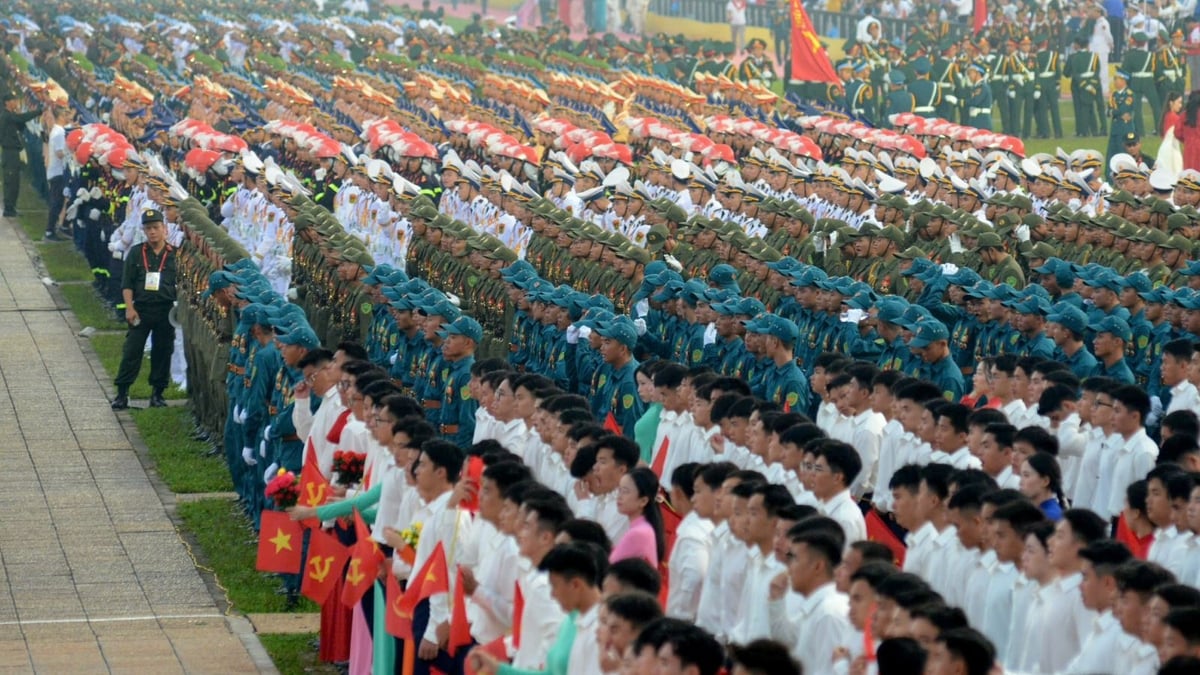
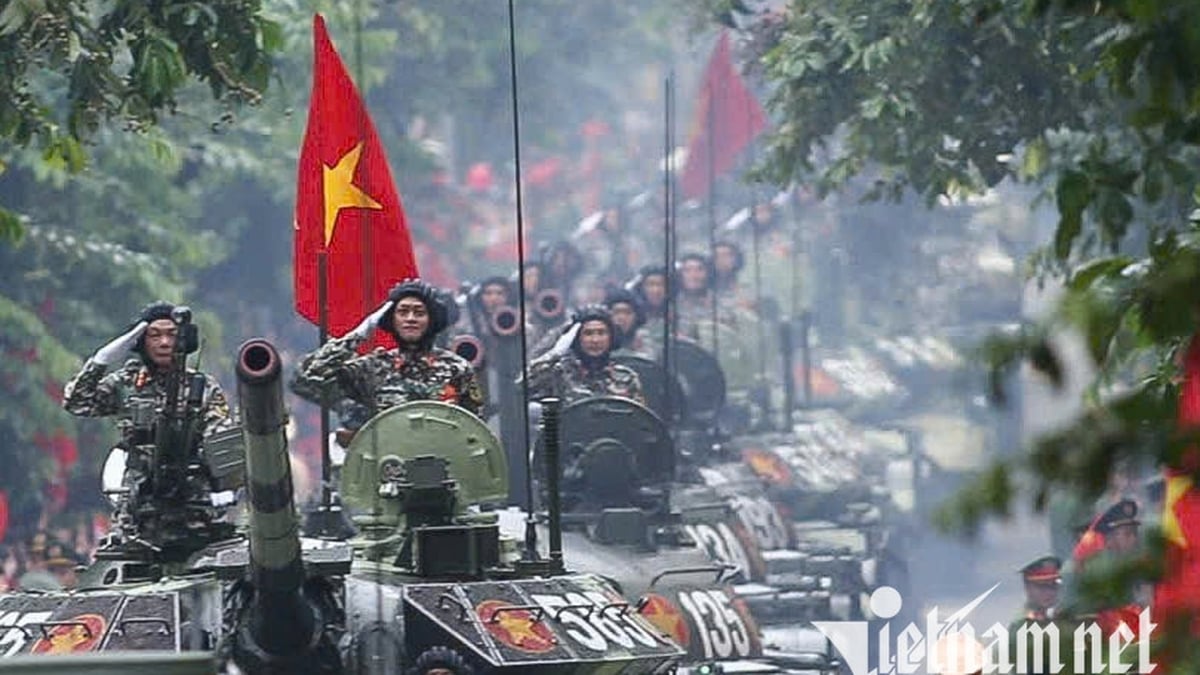


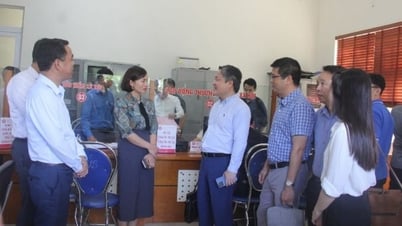


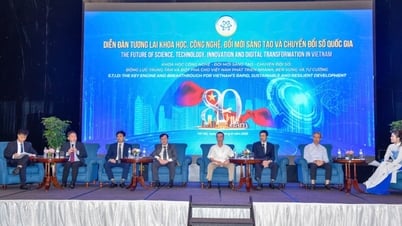

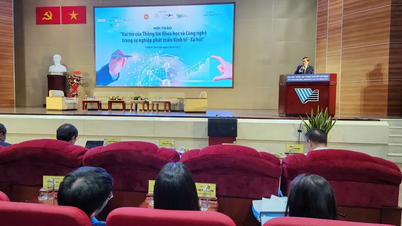

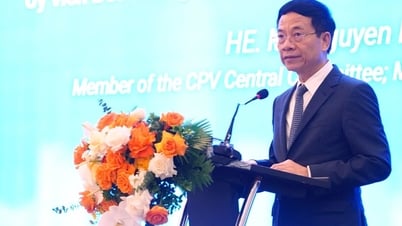
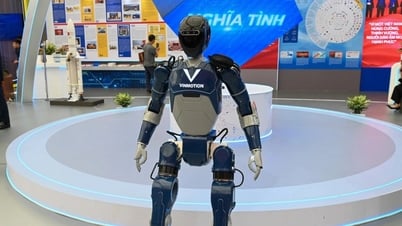











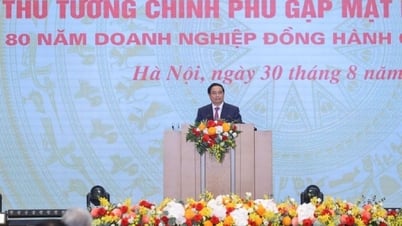

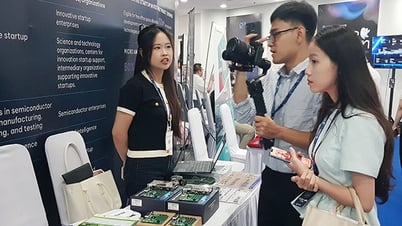

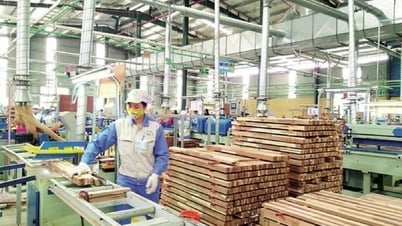
![[Photo] Chu Dau Ceramics – Proud of Vietnamese identity at Exhibition A80](https://vphoto.vietnam.vn/thumb/1200x675/vietnam/resource/IMAGE/2025/9/1/c62ab2fc69664657b3f03bea2c59c90e)

![[Photo] People eagerly wait all night for the parade on the morning of September 2](https://vphoto.vietnam.vn/thumb/1200x675/vietnam/resource/IMAGE/2025/9/1/0cf8423e8a4e454094f0bace35c9a392)
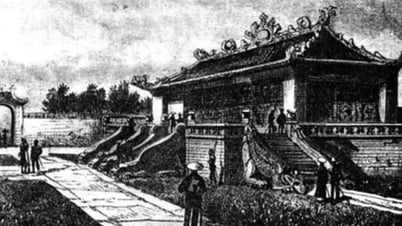

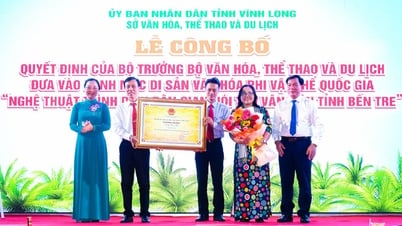









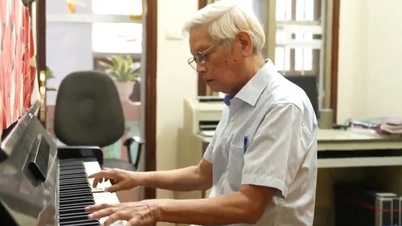
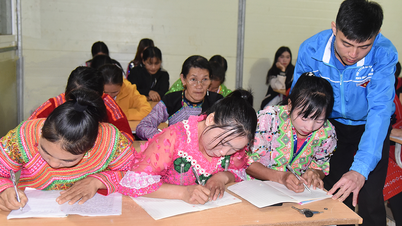

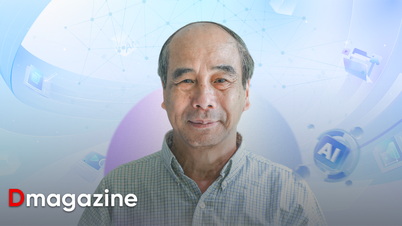

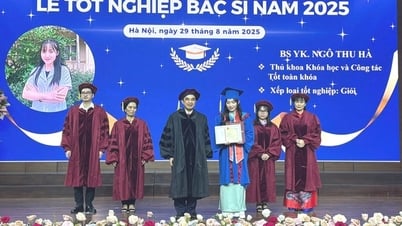







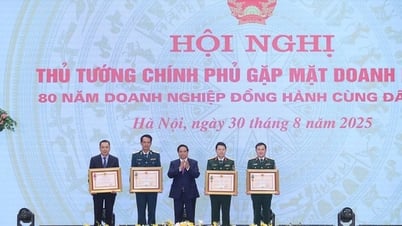


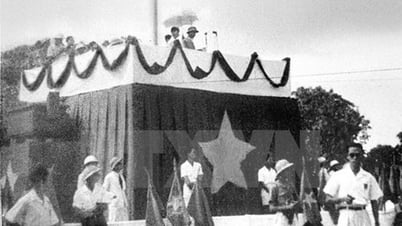


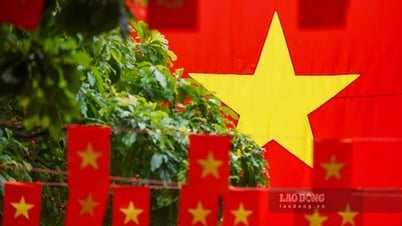

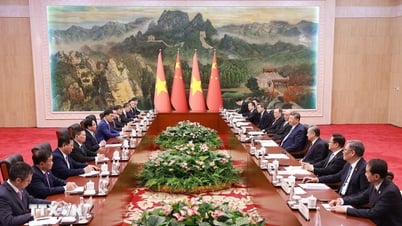
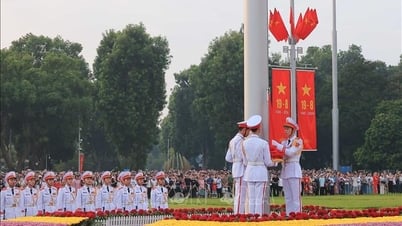




![[Live] Parade and march to celebrate the 80th anniversary of the August Revolution and National Day September 2](https://vphoto.vietnam.vn/thumb/402x226/vietnam/resource/IMAGE/2025/9/2/ab9a5faafecf4bd4893de1594680b043)

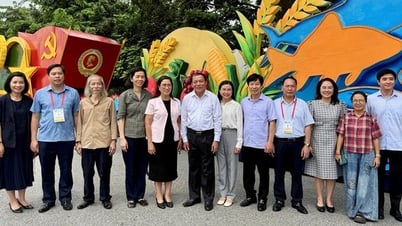




![[Update] Live broadcast of the parade celebrating the 80th anniversary of National Day](https://vphoto.vietnam.vn/thumb/402x226/vietnam/resource/IMAGE/2025/9/2/17473646b9504e219e0368bfa6a62784)



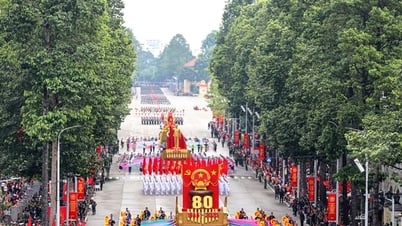




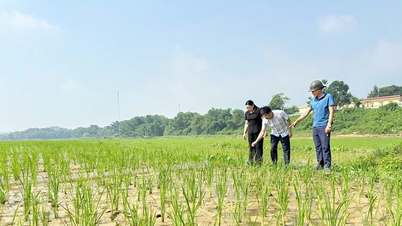







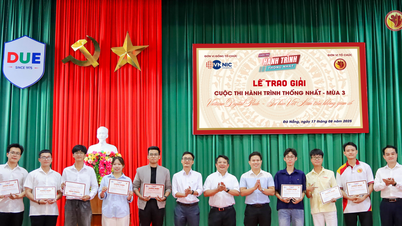





Comment (0)